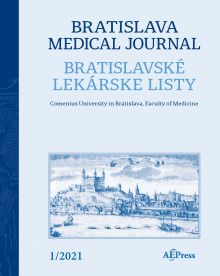Bratislava Medical Journal Vol.114, No.7, p.369-375, 2013
|
| Title: Hepatic progenitor cell inhibition during embryonic period with high dose verapamil; liable joint to the cancer therapy |
| Author: S. Uslu, A. Uysal, A. Bilir, B.C. Soner, G. Oktem |
|
Abstract: Cancer stem cells (CSCs) have been observed to share certain characteristics with normal stem cells. It was an important argument for cancer therapy and a successful progenitor inhibition could show us targeted cell type for a novel strategy. In this study, we aimed to constitute an inhibition in different stages of hepatic stem/progenitor cells (HPCs) with verapamil. Expression patterns of alpha-fetoprotein (AFP), c-kit (CD117) and p-glycoprotein were investigated in developing mouse on the embryonic day (E) 15, E18 and E21 to characterize early and late stages of HPCs. Proliferation inhibition with 5-Bromo-2-Deoxyuridin (BrdU) incorporation and maturation inhibition with PAS staining results were supported by morphometrical analysis during these periods. AFP, c-kit and p-glycoprotein immunoreactivity increased especially in E15 but decreased in E18 and E21 of the control groups during embryonic development. Verapamil treatment effected particularly E15 cells and immunoexpression of HPCs significantly decreased. Proliferation inhibition was observed in all embryonic days of mouse with verapamil and this drug inhibited not only maturation of HPCs in E18 and E21 embryos, but also decreased HPC number in the same embryonic period. According to our results, we estimated that similar to the early and late progenitor stages of HPCs, CSCc can also be in different stages in a heterogenic tumour bulk and the difficulty of CSC inhibition could be the main mechanism of tumour relapses. In this study, HPCs inhibition by verapamil in E15 was not observed in E18 and E21. As similar, CSCs treatments targeting different stages may be impotent to cells in tumour initiating cell stage. We can speculate that ineffectiveness of CSC-specific therapies may be attributed to the highly selective specificity of the treatment (Fig. 6, Ref. 28).
|
|
| Keywords: verapamil, cancer stem cells, p-glycoprotein, alpha-fetoprotein, embryonic period. |
|
|
|
| Year: 2013, Volume: 114, Issue: 7 |
Page From: 369, Page To: 375 |
doi:10.4149/BLL_2013_079
|
|
 download file download file |
|
|
|
|
 download file
download file
